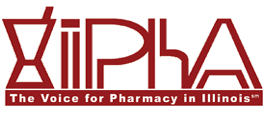Protecting Your Medical License When You Prescribe Controlled Pain Medications
 The United States has been experiencing what has been referred to as an opioid epidemic for years now. Part of the cause of the epidemic was due to pharmaceutical companies insisting these medications were safe and non-addictive. This led physicians to prescribe narcotics at an increasing rate for patients with chronic pain. After it was discovered that these medications were actually highly addictive, they became controlled substances and subject to many regulations. State licensing and regulatory agencies began cracking down on physicians’ prescribing of these medications, punishing many who were abusive or neglectful in their power to prescribe. In 2019, 36 physicians in Illinois received some sort of disciplinary action due to improper controlled substance prescribing practices.
The United States has been experiencing what has been referred to as an opioid epidemic for years now. Part of the cause of the epidemic was due to pharmaceutical companies insisting these medications were safe and non-addictive. This led physicians to prescribe narcotics at an increasing rate for patients with chronic pain. After it was discovered that these medications were actually highly addictive, they became controlled substances and subject to many regulations. State licensing and regulatory agencies began cracking down on physicians’ prescribing of these medications, punishing many who were abusive or neglectful in their power to prescribe. In 2019, 36 physicians in Illinois received some sort of disciplinary action due to improper controlled substance prescribing practices.
Opioid Use Guidelines for Physicians
In 2017, the Federation of State Medical Boards (FSMB) adopted a policy that outlines responsible prescribing practices for physicians with the privilege to prescribe controlled substances. This policy gives state medical boards criteria to use to evaluate a physician’s management of a chronic pain patient. This criteria includes evaluating the physician’s:
- Patients’ assessments and evaluations
- Monitoring of the patient while on the controlled substances
- Use of treatment plans and patient pain goals
- Use of treatment agreements with long-term opioid patients
- Decision to use opioids as a treatment
- Decision to terminate opioid treatment for a patient
- Use of periodic and unannounced drug testing in patients
- Upkeep and accuracy of the opioid patient’s medical records
In addition to providing physicians with guidelines as to how to responsibly prescribe controlled substances, the state of Illinois also requires any physician with a controlled substance license to register with the Illinois Prescription Monitoring Program (ILPMP). This program is an online resource that physicians are meant to use to prevent “doctor shopping,” which occurs when a patient visits multiple doctors to seek multiple prescriptions for controlled substances. Before a physician prescribes a controlled pain medication to a patient, they must first use the ILPMP to search for any other active prescriptions the patient might have.
Contact an Illinois Medical License Defense Attorney
If you have been accused of improper prescribing practices or you simply just want to ensure you are complying with state laws, you should speak with a skilled Illinois medical license defense lawyer. At The Law Offices of Joseph J. Bogdan, Inc., we understand how crucial it is for you to be in compliance with all laws concerning the prescribing of narcotics and other controlled substances. Call our office today at 630-310-1267 to learn more about what we can offer and schedule a consultation.
Sources:
https://www.fsmb.org/siteassets/advocacy/policies/opioid_guidelines_as_adopted_april-2017_final.pdf
https://www.ilpmp.org/QandA.php














